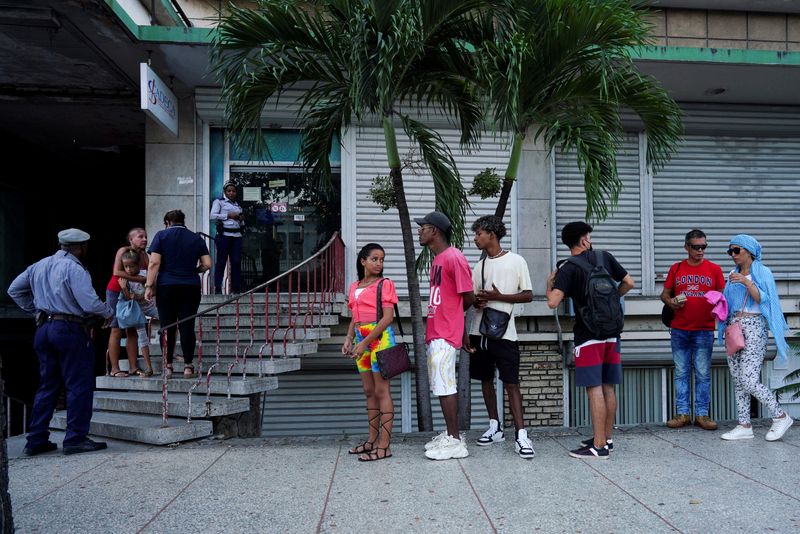By Marc Frank
HAVANA (Reuters) - Cash-starved Cuba fell short of its export and import plans through June of this year amidst grave shortages linked to its dependence on food, fuel and inputs for agriculture and manufacture from abroad.
First Economy Vice Minister Leticia Morales told a parliament commission on Tuesday that export earnings were $1.3 billion, 35.7% of expectations, while imports were $4.4 billion.
Tourism, sugar, nickel and other tradable currency earners all came up short, she said.
Foreign journalists were not invited to the meeting.
The report by the official Prensa Latina News Agency would be no surprise to residents who have seen no let-up to shortages of food, medicine, fuel and other goods since 2020 and braved triple-digit inflation, leading to protests and record emigration.
Morales did not say plans to import more than $9 billion and export $3.6 billion this year had changed.
By comparison, in 2019 the Communist-run country reported exports of $12.6 billion and imports of $11 billion.
Morales also said growth last year was 1.8% compared with 2% previously announced. The gross domestic product was 8 points short of its pre-pandemic level when the year began.

Cuba forecast 3% growth this year, while the U.S. Economic Commission for Latin America and the Caribbean placed it at half that amount.
Cuba publishes little up-to-date information on its current account. The government last reported its foreign debt as being $19.6 billion in 2019.